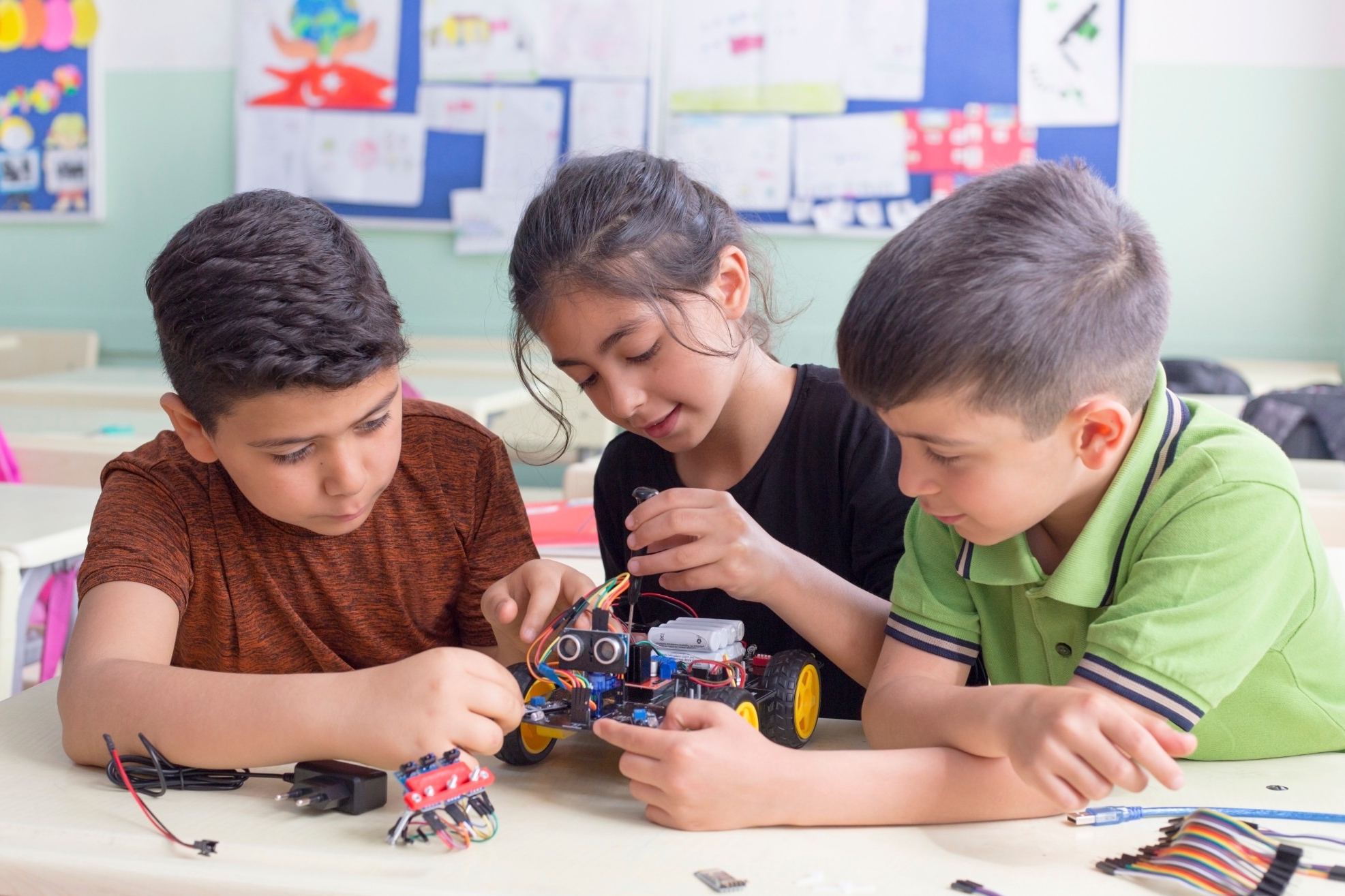- About
- Schools
- Study
- Why Choose FAS?
- Future Undergraduates
- Future Graduates
- Student Life
- Support Services
- Current Students
- Research
- News & Events
- Contact
- SEE Grad
Community Engagement & Outreach

Subscribe to our outreach program newsletter
volunteer_activism
Become an outreach volunteer
work
Apply for an outreach job
The Faculty of Applied Sciences outreach initiatives engage diverse communities of youth with hands-on Science, Technology, Engineering, Arts and Mathematics (STEAM) opportunities.
Our programs provide youth in grades K-12 with the opportunity to participate in innovative workshops, clubs and summer camps to spark their passion for science and technology. We aim to dispel stereotypes in the STEAM fields and work to empower traditionally underrepresented groups by developing barrier-free programs for girls, under-served youth and Indigenous communities.
Questions?
Connect with us at fas_outreach@sfu.ca.
Youth Programs

Science AL!VE
Science AL!VE is dedicated to sparking passion for science, technology, and engineering for Grade K-12! Science AL!VE strives to engage youth in hands-on STEAM (Science, Technology, Engineering, Art & Design, Mathematics) programs to build measurable skills and improve self-confidence. We offer summer camps, weekend clubs, online workshops and resources for teachers.

Invent the Future
Artificial intelligence (AI) has become an integral part of our daily lives, from digital voice assistants to self-driving cars, and more recently, in the form of advanced chatbots like ChatGPT. The Invent the Future Program aims to introduce Grade 7-9 students to AI concepts and their applications through code-along workshops, projects, and group discussions.
Resources For Teachers

Are you a high school teacher looking for materials to teach Computer Science or Programming to students?
The SFU Computer Science Teaching Toolkit (CSTT) provides an engaging set of exercises and tools used to teach Introduction to Computer Science and Programming at SFU.
These materials are provided free of charge to Canadian high school teachers, and highlight the utility and breadth of computer science, while teaching fundamental computer science concepts and programming constructs.
Who developed this material?
Dr. Angelica Lim is a roboticist, educator and champion for diversity in computer science. She is currently an Assistant Professor of Professional Practice in Computing Science at Simon Fraser University. She was the founding president for the SFU Women in Computing Science society in 2003, and Director of the SFU Invent the Future summer program for girls to discover the field of artificial intelligence. Originally from Coquitlam, she received her B.Sc. in Computing Science and French at SFU, and Master's and Ph.D. in Computer Science at Kyoto University, Japan. Previously, she worked as a Software Engineering Manager at SoftBank Robotics in Paris.

